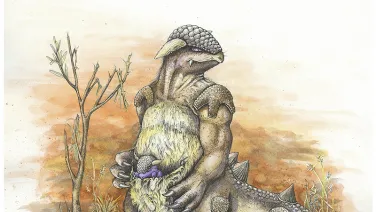E&E Webinar: Wings, feathers, flight: the PhyloG2P approach to understanding bird biology
Scott Edwards is an acclaimed evolutionary biologist specialising in molecular evolution in birds.
Speakers
Event series
Content navigation
Description

Biography
Scott Edwards is an acclaimed evolutionary biologist specialising in molecular evolution in birds. He has produced numerous high profile papers in leading journals like Nature, Science and P.N.A.S. (USA) that explore such topics as phylogenetic tree building, coalescence theory and, for our school-age webinar viewers, work on the relationship between dinosaurs and modern birds. Scott did his PhD at the University of California, Berkley, and then moved to the University of Washington. In 2003 he joined the world renowned Departmental of Organismal and Evolutionary Biology at Harvard University, where he remains to this day. His distinguished career has been recognised by multiple awards. For example, he was a made a fellow of the American Academy of Arts and Sciences in 2006 and the National Academy of Sciences (USA) in 2015. In addition to his research, Scott has actively worked to increase diversity among biologists and build a better, broader community. His deeply human, inclusive and, one might add, courageous approach to difficult challenges is best illustrated by viewing his daily tweets. Scott is currently cycling solo across the U.S.A. with a #BlackLivesMatter sign on his bike. Follow his progress on @ScottVEdwards1.
Location
Please click the link below to join the webinar:
https://anu.zoom.us/j/98061619916?pwd=WWJ2YVVtWVJLWVJ2R0xLTU1yL3IrUT09
Passcode: 067996
Canberra time: please check your local time & date if you are watching from elsewhere


